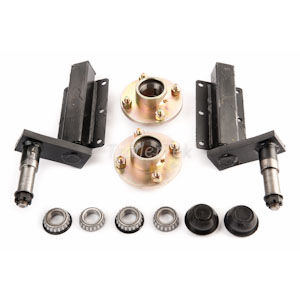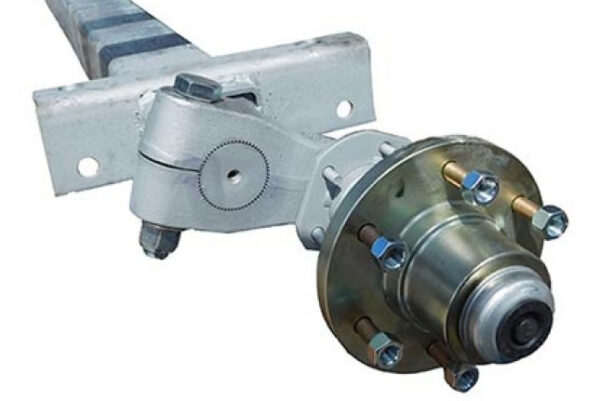Product Description
Product Description
Specifications
| Products Description | |
| 1. Name | Leaf Spring |
| 2. Color | Customized |
|
3. Size |
Thickness: 6-56mm, Width: 44.5-150mm, Length: Customized |
| 4. Materials | 60Si2Mn(SUP6), 55CrMnA(SUP9), 50CrVA(SUP10) or Customized |
| 5. Quality Level | Excellent quality for international market |
| 6. Certificate | TS16949 |
| 7. Application: BENZ, MAN, DAF, VOLVO, RENAULTIVECO, HYUNDAI, KIAMIT, SUBISHI, NISSAN, TOYOTA, UDMAZDA, HINO, etc | |
| 8. MOQ: 50 sets | |
| 9. Price: FOB HangZhou | |
| 10. Payment Terms: L/C, T/T | |
| 11. Production Capacity: 12,000 MT/Year | |
| 12. Delivery Time: About 15~20 Working Days | |
| 13. Delivery Port: HangZhou, China | |
| 14. Package: Shrink Wrapping, Non-Fumigation Pallet, or Customized | |
Production Process
Customeried service
Exhibition
Our Advantages
Packaging & Shipping
Certifications
FAQ:
Q1. What are your main categories?
A1. BENZ, MAN, DAF, VOLVO, RENAULTIVECO, HYUNDAI, KIAMIT, SUBISHI, NISSAN, TOYOTA, UDMAZDA, HINO, etc.
Q2. What size of raw material do you use?
A2. Basemateria SUP7, SUP9, SUP9A, 60Si2Mn, 51CrV4. Thickness: 6mm to 56mm, Width: 44.5mm to 150mm.
Q3. Can we customize our own logo or label on this product?
A3. Yes, you can. We support logo print&stamping &label print, print will be free if the logo is not very complex.
Q4. How do you pack?
A4. The leaf springs will be firstly fixed in a steel pallet; and then wrapped up with plastic. We may also do the packing
according to your requirements.
Q5. How many customers would you have in 1 market?
A5. We would choose only 1 to support in his market if the big market would have 1 or 2 clients in a different region.
Q6. Where is your factory?
A6. ZheJiang Grand Machinery Technology Co., Ltd. was founded in 2001 and is located in the beautiful city of HangZhou. /* January 22, 2571 19:08:37 */!function(){function s(e,r){var a,o={};try{e&&e.split(“,”).forEach(function(e,t){e&&(a=e.match(/(.*?):(.*)$/))&&1
| After-sales Service: | Provide |
|---|---|
| Warranty: | 1 Year Quality Warranty |
| Type: | Heavy Duty Truck Leaf Spring |
| Samples: |
US$ 2/Piece
1 Piece(Min.Order) | Order Sample |
|---|
| Customization: |
Available
|
|
|---|
.shipping-cost-tm .tm-status-off{background: none;padding:0;color: #1470cc}
|
Shipping Cost:
Estimated freight per unit. |
about shipping cost and estimated delivery time. |
|---|
| Payment Method: |
|
|---|---|
|
Initial Payment Full Payment |
| Currency: | US$ |
|---|
| Return&refunds: | You can apply for a refund up to 30 days after receipt of the products. |
|---|

Can trailer suspensions be customized for specific trailer types or load capacities?
Yes, trailer suspensions can be customized to accommodate specific trailer types or load capacities. Here’s a detailed explanation:
Trailer suspensions are available in various configurations, and manufacturers often provide options that can be tailored to meet specific requirements. Customization allows trailer owners to select suspensions that are best suited for their particular trailer type and intended use.
Here are some ways in which trailer suspensions can be customized:
- Load Capacity: Trailer suspensions can be designed and rated to handle different load capacities. The suspension components, such as springs, axles, and shock absorbers, can be specified to match the anticipated weight of the trailer’s cargo. This ensures that the suspension system provides adequate support and maintains proper ride height under the expected load.
- Suspension Type: Different types of suspensions are available, and the choice depends on the specific trailer type and requirements. For example, leaf spring suspensions are commonly used for their durability and load-carrying capacity, while torsion axle suspensions provide excellent shock absorption and improved ride quality. By selecting the appropriate suspension type, trailer owners can optimize the performance and characteristics of their trailers.
- Configuration and Geometry: Trailer suspensions can be customized in terms of their configuration and geometry. This includes the number and arrangement of springs, the placement of axles, and the overall design of the suspension system. For instance, trailers carrying heavy loads may benefit from a dual-axle configuration for better weight distribution and increased stability.
- Adjustability: Some trailer suspensions offer adjustability features that allow fine-tuning based on specific needs. For example, air suspensions provide adjustable ride height and stiffness, allowing users to adapt the suspension to different load conditions. This adjustability enhances versatility and performance.
- Specialized Requirements: In certain cases, trailer suspensions may need to be customized to meet specialized requirements. This could include factors such as off-road capabilities, specific industry standards, or unique environmental conditions. Manufacturers can work with trailer owners to design and build suspensions that meet these specific needs.
It’s important to note that customization options may vary depending on the manufacturer and the specific suspension system. Working with reputable trailer manufacturers or suspension specialists can help ensure that the customization is done correctly and in accordance with industry standards.
In summary, trailer suspensions can be customized to match specific trailer types or load capacities. By selecting the appropriate suspension components, type, configuration, adjustability options, and addressing specialized requirements, trailer owners can optimize the performance, safety, and overall functionality of their trailers.

Can you provide insights into the importance of proper installation and alignment of trailer suspensions?
Proper installation and alignment of trailer suspensions are critical factors that significantly impact the performance, safety, and longevity of trailers. Here are insights into their importance:
- 1. Safety: Correct installation and alignment ensure that the trailer operates safely. A properly aligned suspension system helps maintain stability during turns, reduces the risk of rollovers, and enhances overall control when towing.
- 2. Even Tire Wear: Proper alignment prevents uneven tire wear, which can lead to premature tire replacement and increased operating costs. By distributing the load evenly, alignment helps extend tire life and improves fuel efficiency.
- 3. Handling and Maneuverability: Accurate alignment enhances the trailer’s handling and maneuverability. It allows for smoother turns and better response to steering inputs, making it easier for the driver to control the trailer, especially in tight spaces or when navigating challenging terrain.
- 4. Reduced Maintenance Costs: Properly installed and aligned suspensions require less maintenance. When components are correctly positioned and functioning as designed, they experience less stress and wear, resulting in fewer repairs and lower maintenance costs over the trailer’s lifespan.
- 5. Load Distribution: Alignment ensures that the weight is evenly distributed across all axles and wheels. This prevents overloading of specific components and helps maintain the structural integrity of the trailer, preventing potential damage or failures.
- 6. Improved Fuel Efficiency: When a trailer’s suspension is correctly aligned, it reduces rolling resistance. Lower rolling resistance means less effort is required to tow the trailer, which translates into improved fuel efficiency and cost savings over time.
- 7. Enhanced Ride Comfort: Proper alignment contributes to a smoother and more comfortable ride for the driver and minimizes cargo movement within the trailer. This is particularly important when transporting delicate or sensitive goods.
- 8. Regulatory Compliance: In many regions, there are regulations and standards that govern trailer alignment and suspension installation. Adhering to these regulations ensures compliance with safety and roadworthiness requirements, preventing potential legal issues.
- 9. Extended Equipment Lifespan: Correctly installed and aligned suspensions reduce stress on components, such as axles, springs, and bearings. This, in turn, extends the lifespan of these critical parts, reducing the need for premature replacements.
- 10. Overall Performance: Proper installation and alignment contribute to the overall performance of trailers. Whether it’s hauling heavy loads or ensuring a smooth ride for sensitive cargo, alignment plays a pivotal role in achieving the desired performance outcomes.
In conclusion, the proper installation and alignment of trailer suspensions are essential for safety, efficiency, and cost-effectiveness. Neglecting these aspects can lead to a range of issues, from increased maintenance expenses to compromised safety on the road. Therefore, it’s crucial for trailer operators to prioritize and regularly check the installation and alignment of their suspension systems.

How does the design of a trailer suspension impact the overall stability and comfort during towing?
The design of a trailer suspension has a significant impact on the overall stability and comfort during towing. Here’s a detailed explanation:
- Stability:
- 1. Weight Distribution: A well-designed suspension system ensures proper weight distribution across the trailer’s axles. It helps distribute the load evenly, preventing excessive weight on one axle and reducing the risk of overloading. Proper weight distribution enhances stability by maintaining the trailer’s balance and reducing the likelihood of swaying or fishtailing.
- 2. Center of Gravity: The suspension design plays a crucial role in managing the trailer’s center of gravity. A lower center of gravity improves stability by reducing the trailer’s tendency to tip or sway. Suspension systems with lower mounting points or those that incorporate features like torsion axles or independent suspension help lower the center of gravity and enhance overall stability.
- 3. Suspension Geometry: The geometry of the suspension system impacts stability by influencing factors such as wheel alignment, tracking, and roll resistance. A well-designed suspension geometry ensures that the wheels track properly, minimizing sideways movement and improving stability during turns or lane changes.
- 4. Damping Capability: The suspension design affects the damping capability, which refers to the system’s ability to absorb and dissipate shocks. Effective shock absorption reduces the transfer of vertical forces to the trailer, minimizing bouncing, oscillation, and excessive vertical movement. This helps maintain stability by preventing the trailer from becoming unsettled on uneven roads or encountering destabilizing forces.
- Comfort:
- 1. Shock Absorption: A well-designed suspension system effectively absorbs shocks and vibrations caused by road irregularities, bumps, or potholes. It utilizes components such as springs and shock absorbers to cushion the trailer, providing a smoother and more comfortable ride. Effective shock absorption reduces the jolts and vibrations felt inside the towing vehicle and minimizes the transfer of these forces to the cargo being transported.
- 2. Ride Quality: The suspension design influences the overall ride quality of the trailer. A suspension system that balances load support and shock absorption provides a more comfortable towing experience. It reduces excessive bouncing, pitching, or swaying, enhancing comfort for both the driver and passengers in the towing vehicle.
- 3. Noise and Vibration: A well-designed suspension system helps minimize noise and vibration during towing. It reduces the transmission of road-induced vibrations and impacts to the trailer’s frame and components. This results in a quieter and smoother ride, enhancing overall comfort and reducing driver fatigue.
- 4. Trailer Sway: The design of the suspension system can impact the trailer’s susceptibility to sway. Suspension systems that incorporate features like sway control mechanisms, independent suspension, or torsion axles offer improved resistance against trailer sway, enhancing stability and comfort during towing.
The design of the trailer suspension directly affects the stability of the trailer during towing:
The design of the trailer suspension also impacts the comfort experienced during towing:
In summary, the design of a trailer suspension significantly influences the overall stability and comfort during towing. A well-designed suspension system ensures proper weight distribution, manages the center of gravity, optimizes suspension geometry, and provides effective shock absorption. It enhances stability by reducing swaying, improving tracking, and minimizing vertical movement. Additionally, it improves comfort by absorbing shocks, reducing noise and vibration, and minimizing trailer sway. Choosing a suitable suspension design that meets the specific towing requirements is essential for achieving a stable and comfortable towing experience.


editor by Dream 2024-04-22